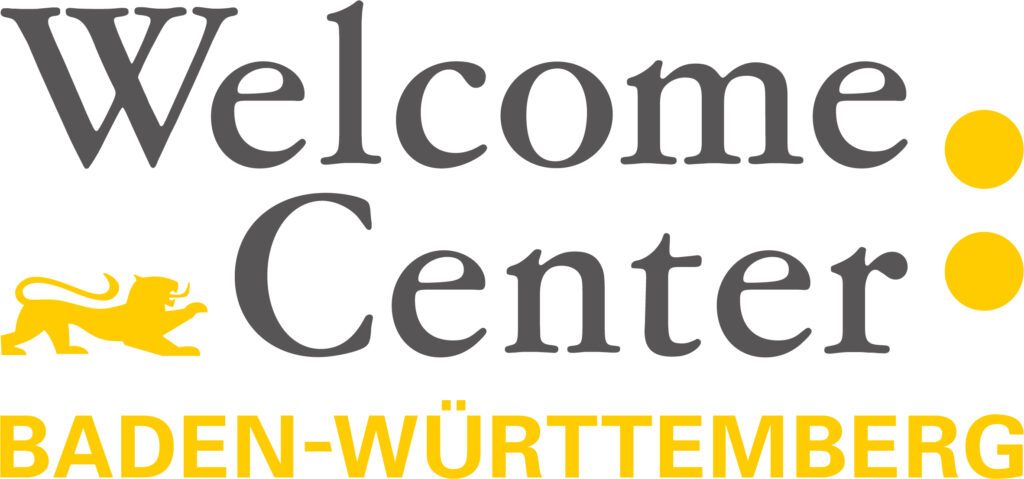Work permit
To be able to work in Germany, you need a so-called residence permit for gainful employment - however, many people refer to this as a work permit. This term is outdated - it was abolished in 2005 as part of the Immigration Act. Since 01.01.2005, the entitlement to pursue gainful employment has been entered in the so-called "residence title".
On this page you will find important information about residence permits, the labor market and concluding employment contracts. We will be happy to advise you!
How do I obtain a work permit?
In order to sign your employment contract, you must first apply for a work permit. EU citizens benefit from the free movement of workers, but skilled workers must comply with certain requirements and collective bargaining conditions. Special regulations apply to auxiliary workers, the show business and domestic help.
The process takes around four weeks and the International Placement Services (ZAV) takes care of the work permit for EU citizens. Non-EU citizens require a residence permit, which they can apply for either at the German diplomatic mission abroad or the immigration authority in Germany. The approval of the Federal Employment Agency is required.
Telephone advice from the ZAV
Under the telephone number: +49 228 713 1313
Important to know
Für Staatsangehörige aus Australien, Israel, Japan, Kanada, der Republik Korea, Neuseeland und den USA gibt es besondere Regelungen. Sie können den erforderlichen Aufenthaltstitel auch nach der Einreise in Deutschland beantragen. Beachten Sie dabei jedoch, dass die geplante Erwerbstätigkeit erst nach Erteilung des entsprechenden Aufenthaltstitels aufgenommen werden darf. Wir begleiten Sie gerne auf diesem Weg!
Employment contract: The legal basis for the employment relationship
Congratulations on your successful job interview! Now it's time to sign the employment contract and we would like to tell you what you should pay particular attention to.
What types of employment contract are there?
There are permanent and fixed-term employment contracts. Fixed-term contracts are limited to a previously agreed period and must be recorded in writing. Otherwise, the contract is deemed to be for an indefinite period.
Can you come to Germany with an employment contract?
You can apply for an entry visa with an employment contract. Whether a visa is required depends on your nationality.
How can I come to Germany with an employment contract?
EU citizens benefit from the free movement of workers. For non-EU citizens, a residence permit is required, which you can apply for at the German diplomatic mission abroad or at a foreigners authority in Germany. The approval of the Federal Employment Agency is usually required. Please note the special regulations for nationals from certain countries.
What obligations and information are contained in the employment contract?
The contract creates obligations for both parties. Employees have duties of personal performance, obedience, loyalty and, under certain conditions, a non-competition clause. Employers are obliged to pay wages, pay social security contributions, grant vacation, employment, welfare and issue a certificate.
An employment contract should also provide information on the following points:
- Contracting parties
- Job description
- Start and duration of the employment relationship
- Trial period
- Remuneration
- Vacation duration
- any collective agreements
What working hours apply?
Working time is defined as the time from the start to the end of work without a rest break. In the case of shift work, working time is divided into alternating periods.
Rest periods include rest breaks (during working hours), rest periods (after the end of the daily working hours) and paid rest leave.
At a glance: The labor market in the Karlsruhe TechnologyRegion
The Karlsruhe TechnologyRegion (TRK) is one of the strongest performing economic regions in Europe. It combines a healthy mix of international corporations, globally significant scientific institutions, medium-sized companies (often market leaders in their niche) and start-ups. In addition, there is a balanced mix of industries with a high proportion of future technologies.
Around a third of the workforce works in technology-intensive sectors - more than in almost any other region in Europe.
The most important sectors include:
- information and communication technology
- Motor vehicle construction with suppliers
- the manufacturers of electronic equipment
- mechanical engineering
- mineral oil processing
- the cultural and creative industries



